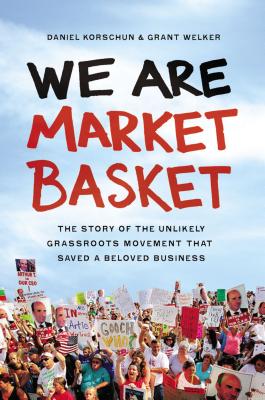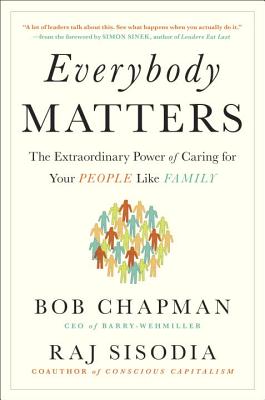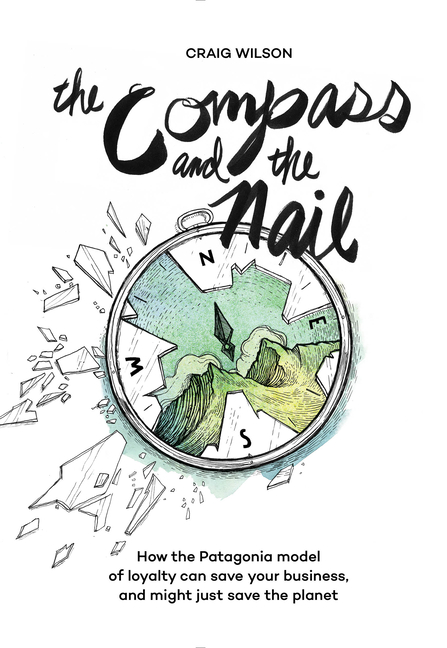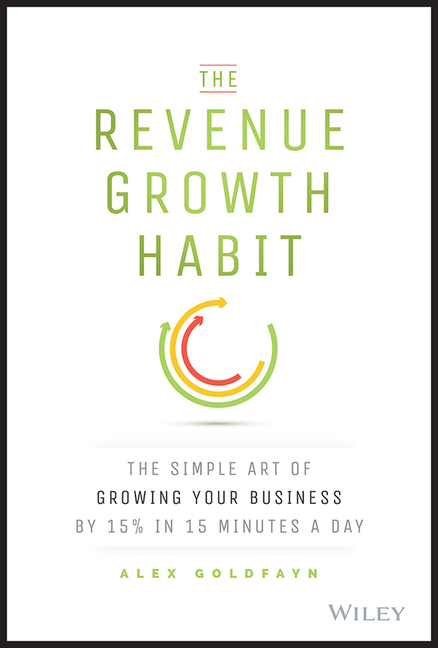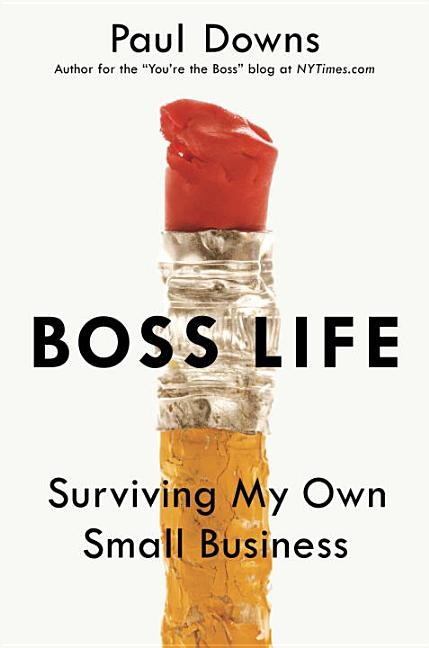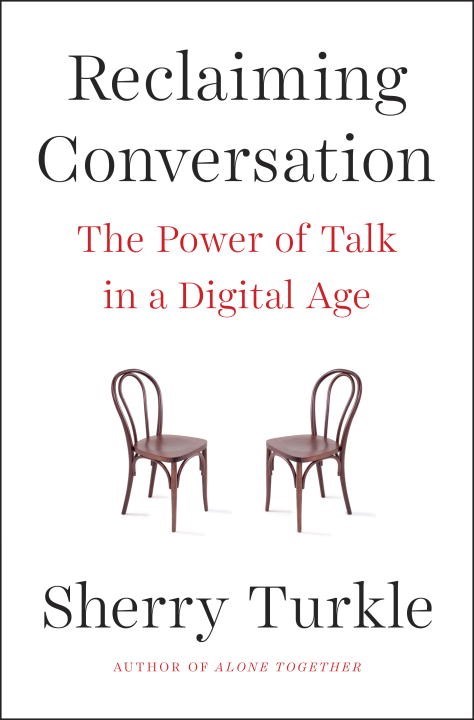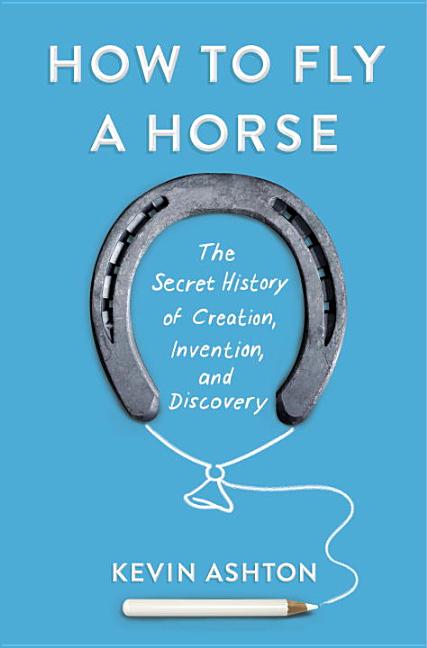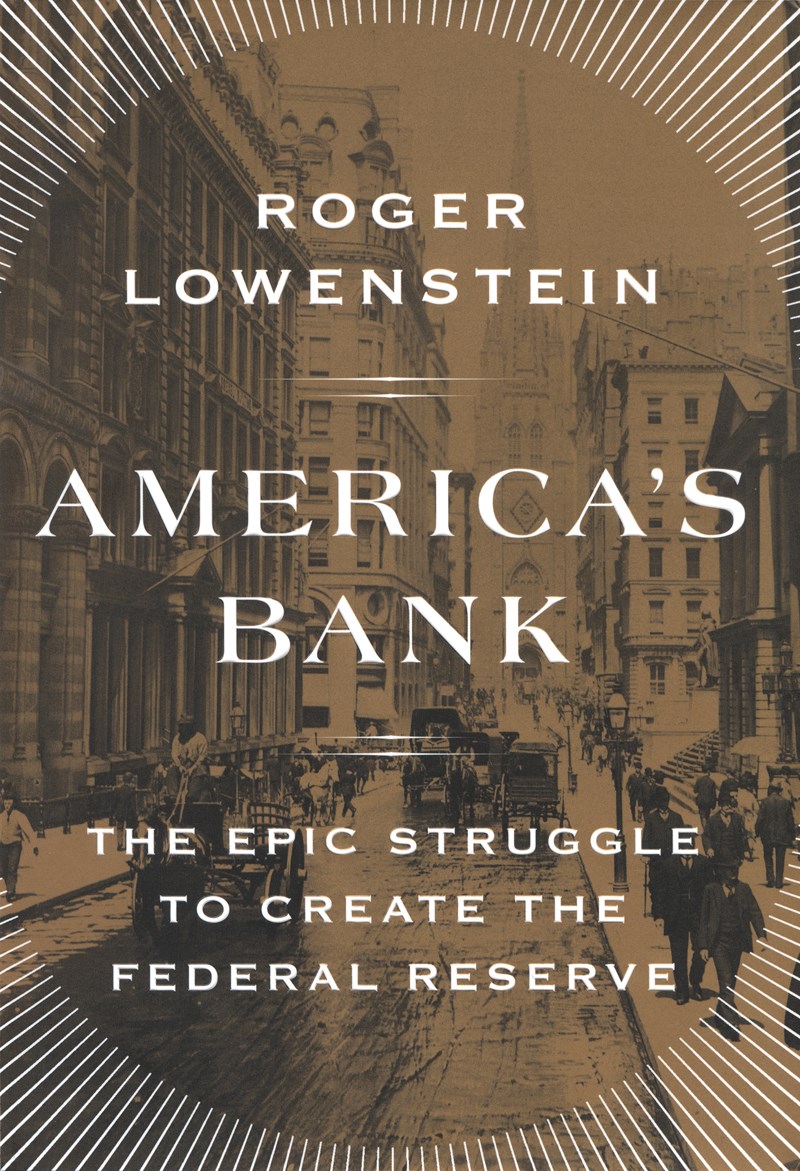The 2015 800-CEO-READ Business Book Awards Shortlist
December 08, 2015
In which we announce our eight category winners, which become the finalists for our book of the year.

All 40 books on the shortlist are worthy of admiration and any business person’s attention. But, for one reason or another, the following eight gained momentum in our awards conversations that ultimately pushed them through to the final round of conversations that will determine the overall 800-CEO-READ Business Book of the Year.
- We Are Market Basket: The Story of the Unlikely Grassroots Movement That Saved a Beloved Business by Daniel Korschun and Grant Welker, AMACOM Books (General Business)
- Everybody Matters: The Extraordinary Power of Caring for Your People Like Family Bob Chapman and Raj Sisodia, Portfolio (Leadership & Management)
- How to Fly A Horse: The Secret History of Creation, Invention, and Discovery by Kevin Ashton, Doubleday (Innovation & Creativity)
- The Compass and The Nail: How the Patagonia Model of Loyalty Can Save Your Business, and Might Just Save the Planet Craig Wilson, Rare Bird Books (Marketing)
- The Revenue Growth Habit: The Simple Art of Growing Your Business by 15% in 15 Minutes Per Day by Alex Goldfayn, Wiley (Sales)
- Boss Life: Surviving My Own Small Business Paul Downs, Blue Rider Press (Entrepreneurship)
- Reclaiming Conversation: The Power of Talk in a Digital Age Sherry Turkle, Penguin Press (Personal Development)
- America’s Bank: The Epic Struggle to Create the Federal Reserve by Roger Lowenstein, Penguin Press (Finance & Economics)
We're giving away a bundle of all eight shortlist titles. Click here to head to the giveaway.
The Shortlist: What We Wrote
Here's what we recently wrote about all eight Shortlist titles in our series of Inside the Longlist posts.
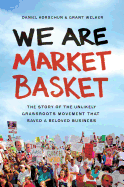 We Are Market Basket: The Story of the Unlikely Grassroots Movement That Saved a Beloved Business by Daniel Korschun and Grant Welker, AMACOM Books (General Business)
We Are Market Basket: The Story of the Unlikely Grassroots Movement That Saved a Beloved Business by Daniel Korschun and Grant Welker, AMACOM Books (General Business)
From our Inside the Longlist post:
We Are Market Basket: The Story of the Unlikely Grassroots Movement That Saved a Beloved Business is the story of a New England grocery chain that has a little of everything. It’s a great company history and narrative, a good management primer, the story of a family power struggle, and a battle between two visions of American Capitalism—pitting employee and consumer interests against shareholder interests—which shows that undermining the former two ultimately undermines that latter. It is a story so idealistic that it’s hard to believe at first it is realistic, that it really happened. But it did. It is the story of Market Basket employees striking, and Market Basket customers boycotting the store, until a popular CEO and the business model he represented and fought for were reinstated. It is the story of the fight to preserve something more than the CEO, a business model and a model business, and it is a fight they won, after a lengthy media circus, legal battle, and involvement of two state’s governors. It is a truly remarkable story about the very foundations and philosophy of free enterprise. And, tell me, how many stories have you heard of people protesting in favor of a CEO?
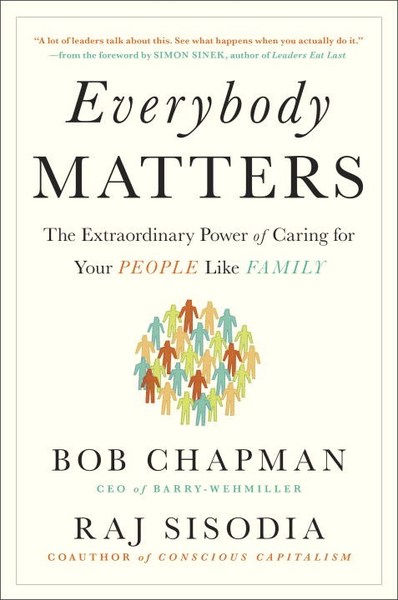 Everybody Matters: The Extraordinary Power of Caring for Your People Like Family Bob Chapman and Raj Sisodia, Portfolio (Leadership & Management)
Everybody Matters: The Extraordinary Power of Caring for Your People Like Family Bob Chapman and Raj Sisodia, Portfolio (Leadership & Management)
From our Inside the Longlist post:
Everybody Matters by Bob Chapman and Raj Sisodia gained considerable weight as I read it, because I loaded the entire book with post-it flags, marking the ideas I wanted to come back to. Chapman’s overarching idea, the one he builds his company and book around, is that: “The machinery we build is just the economic engine that enables us to touch lives. The flourishing of those lives is our paramount concern.” And every bit of hard management advice he provides to instill that idea seemed tailor-fit for our small company, despite the fact that Chapman is the CEO of an enormous manufacturing company that grows primarily via mergers and acquisitions. And in the process of instilling his company’s dedicated approach to humanistic leadership in the companies they acquire, the message in Bob Chapman’s book has been born out:
The Barry-Wehmiller approach to transformation, rejuvenation, and renewed growth has been proven to work in dozens of companies in different industries and diverse cultures around the world. No matter the status of the industry—distressed or vibrant, even companies experiencing severe challenges—our approach has created tremendous stakeholder value.
I’ve witnessed what a commitment to people can do for a company--at 800-CEO-READ, our low turn-over and fiscal health is, I believe, a direct result of our people-first philosophy--, so it is no wonder I feel so convinced that Everybody Matters is the book every leader and manager should read. This focus can and should be applied to every company of every size, and this engaging book will help you do so with the stories of employees whose work lives were made better by managers who were enabled by an enlightened company policy to care fully for the their people.
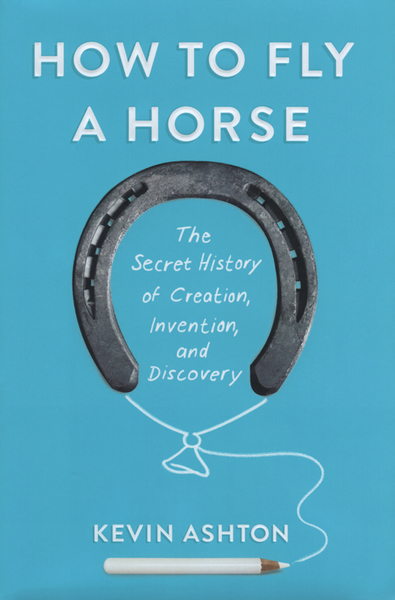 How to Fly A Horse: The Secret History of Creation, Invention, and Discovery by Kevin Ashton, Doubleday (Innovation & Creativity)
How to Fly A Horse: The Secret History of Creation, Invention, and Discovery by Kevin Ashton, Doubleday (Innovation & Creativity)
From our Inside the Longlist post:
Another big idea to challenge big ideas comes in Kevin Ashton’s How To Fly a Horse. The book’s historical breadth of industry and inventions is impressive, even beginning with the story of how vanilla beans came to be industrially farmed. Ashton uses this delightfully diverse history to illustrate his main argument: there are no lone geniuses. Though he’s not the first to make the assertion, his recipe is our favorite so far. How to Fly a Horse takes well-researched historical cases of invention, Ashton’s own expertise and experience with innovation, and finally adds a splash of the author’s own badass attitude as if to say, “I don’t care if you don’t like it, this is how it works!” By the end, How to Fly a Horse destroys the grand myth of individual innovators and lone creative types, and puts the act of innovation and credit for creating them back into the hands of organized people and the communities they exist in.
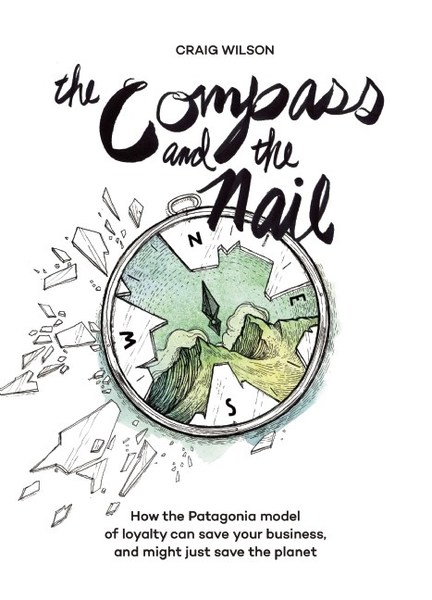 The Compass and The Nail: How the Patagonia Model of Loyalty Can Save Your Business, and Might Just Save the Planet Craig Wilson, Rare Bird Books (Marketing)
The Compass and The Nail: How the Patagonia Model of Loyalty Can Save Your Business, and Might Just Save the Planet Craig Wilson, Rare Bird Books (Marketing)
From our Inside the Longlist post:
Our company has a long-time fondness for the team at Patagonia. Founder Yvon Chouinard's workplace classic, Let My People Go Surfing, was one of our earliest best sellers. We regularly monitor their pioneering efforts in work/life balance as we doggedly work for a better work environment of our own. And now, gratefully, we get a peek into their world-class branding machine from Craig Wilson, who spearheaded their multi-channel marketing efforts for nearly a decade.
In his first book, Wilson lays out the details of Patagonia’s “Brand Ecosystem” model, which answers the question: “How can some companies create such strong affection for their brands that their customers feel compelled to rave about them?” People identify with the Patagonia brand on a deep, personal level--the holy grail for all branding creatives.
[The] path to long-term sustainable loyalty is based on an unspoken agreement:You believe what I believe and I believe what you believe. Now we can do business from a place of trust and inspiration.
It’s the reason customers of The North Face don’t wear Patagonia and customers of Patagonia don’t wear The North Face. Not because of features and benefits, but because if you believe in conquering nature, you’re likely a fan of The North Face. If you believe in the value of being in nature, you’re likely a fan of Patagonia.”
How well does your company do at drawing this kind of emotional distinction between two nearly identical products?
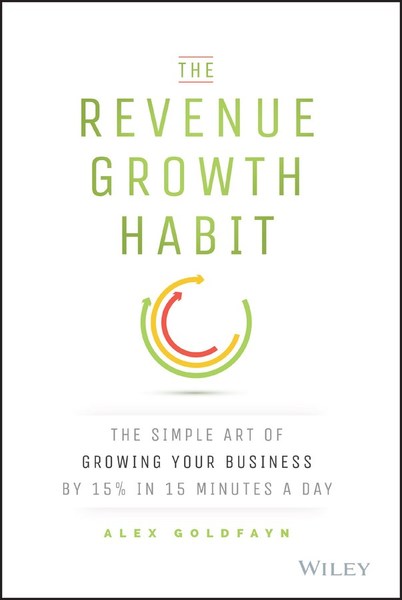 The Revenue Growth Habit: The Simple Art of Growing Your Business by 15% in 15 Minutes Per Day by Alex Goldfayn, Wiley (Sales)
The Revenue Growth Habit: The Simple Art of Growing Your Business by 15% in 15 Minutes Per Day by Alex Goldfayn, Wiley (Sales)
From our Inside the Longlist post:
One of the biggest problems that myself and many sales professionals and leaders have is, quite simply, time. Sales is a job that never sleeps. There is always a lead to chase, or a person to call, or an email to respond to. We are big proponents that the books that we sell help people, so naturally we try as hard as we can to read the books we see on our shelves to better ourselves. Alex Goldfayn takes the time investment equation off the table with his first book. The chapters are short and immediately actionable, so the reader can digest the points in this book at his or her own leisure, but walk away with valuable information to apply almost immediately. The book is full of important reminders of simple concepts that we often forget in our busy day-to-day lives.
It’s extraordinarily easy to grow business. Just communicate more with people who can buy from you. It’s no more complicated than that.
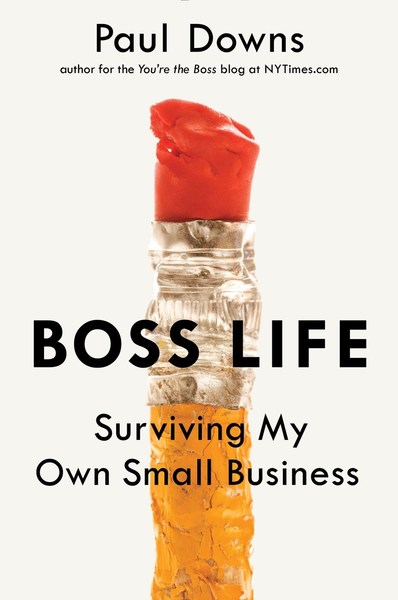 Boss Life: Surviving My Own Small Business Paul Downs, Blue Rider Press (Entrepreneurship)
Boss Life: Surviving My Own Small Business Paul Downs, Blue Rider Press (Entrepreneurship)
From our Inside the Longlist post:
Boss Life is, to say the least, refreshing, in that Downs doesn't pretend he has a blueprint for small business success. Rather, he painstakingly walks readers through his actual experiences, revealing what too many business books gloss over: running and growing a successful small business is really, really hard, full of gut-wrenching decisions, and littered with frustrating mistakes. Aspiring entrepreneurs might glean lessons from Downs' story—both his failures and successes—but the real power of this book is simply that it mirrors not only a select few IPO chasing dreamers, but the experience of millions of business owners just looking for a solid life.
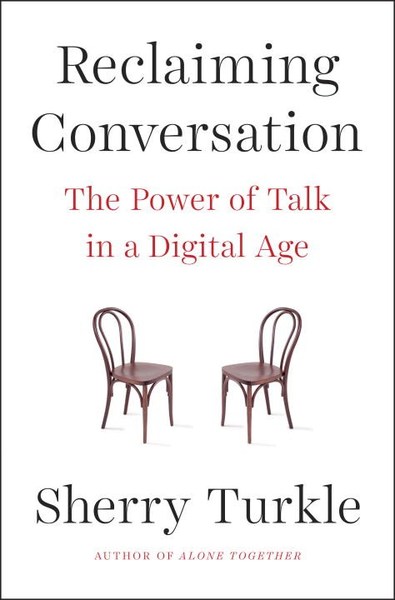 Reclaiming Conversation: The Power of Talk in a Digital Age Sherry Turkle, The Penguin Press (Personal Development)
Reclaiming Conversation: The Power of Talk in a Digital Age Sherry Turkle, The Penguin Press (Personal Development)
From our Inside the Longlist post:
Each year we’re discussing the book awards, we see a few trends that rise above the norms of each category that begin to represent an overarching trend. With longlist inclusions of The Rise of the Robots, Geek Heresy, Data-ism, The Smarter Screen, and Reclaiming Conversation, we are seeing a continuing trend of books exploring incursion of digital technology in our everyday work and interactions, and an examination of its repercussions. How often do we hear our own loved one’s voices, when we only need to send them a text from our closest device. When is the last time an intimate dinner didn’t involve taking a picture of your meal and posting it to your 2000 Twitter followers. Sherry Turkle has been studying digital culture and communication for more than 30 years, and in this book investigates a troubling concern that real human conversations, solitude, and self reflection are endangered by digital technology (and provides principles for overcoming that danger):
Self reflection makes us vulnerable. That’s why its traditions so often includes ways of protecting one’s privacy (we lock and hide our diaries) and confidentiality (as in relationships with a therapist or a clergyman). Social media encourage us to play by another set of rules. You share as you reflect; you reflect as you share. And the companies that provide the platforms for all of this get to see and keep it all. Privacy, loosely defined as freedom from being observed, is gone. At what cost?
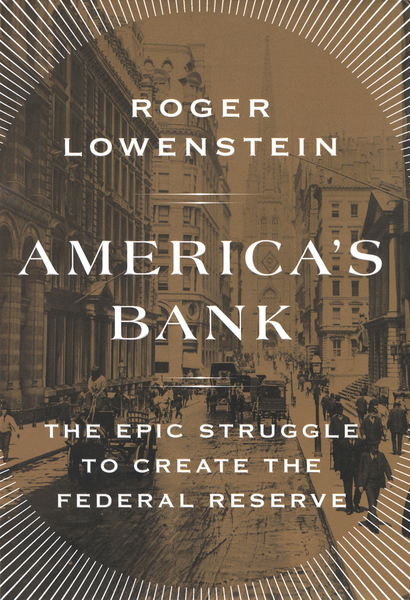 America’s Bank: The Epic Struggle to Create the Federal Reserve by Roger Lowenstein, The Penguin Press (Finance & Economics)
America’s Bank: The Epic Struggle to Create the Federal Reserve by Roger Lowenstein, The Penguin Press (Finance & Economics)
From our Inside the Longlist post:
America’s Bank, on the other hand, demonstrates practical politics at its best. The drama throughout the book is as high as in The Full Catastrophe, but it has a happier ending in the formation of the Federal Reserve. Of course, the fact that about half the people reading this will scoff at the idea of the Federal Reserve as a positive result shows exactly how contentious the issues dissected in the book are still today, and why this book is so informative to the present moment even as a work of history. And what a brilliant work of history it is. The Federal Reserve is not America’s first national bank, and Roger Lowenstein documents the first few hiccups, the backwards politics, monetary dysfunction, and uneven financial prospects of America as a young nation. As a rising industrial power in the early twentieth century, at a time when monetary ideas and policy swayed national elections, there was a growing consensus that something needed to be done, that a new national bank must be formed. This leads us to the high drama of bankers and politicians secretly eloping to hammer out the details of such a federal bank that could be acceptable, and the even higher drama of getting those ideas put hammered into legislation and that legislation hammered through the United Stated Congress. It is, as I wrote in an earlier review of the book, drama worthy of an original HBO series.


